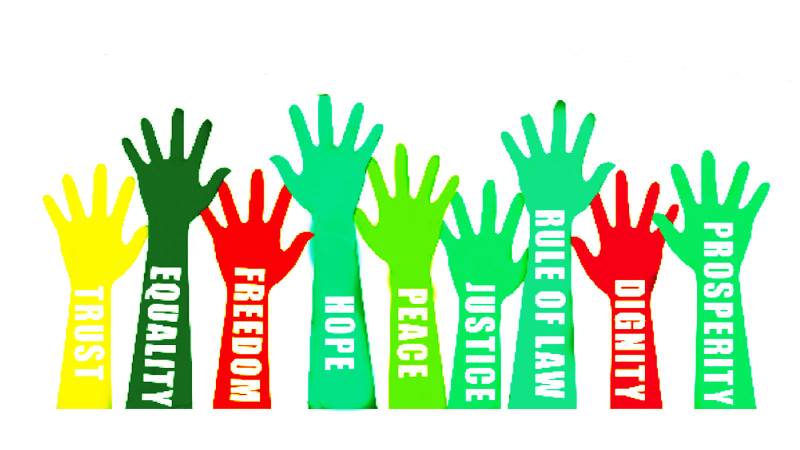
Pakistan, a diverse and vibrant nation, has made significant strides in various aspects of its socio-political landscape. However, the country has faced challenges in ensuring the full realization of human rights, equality, freedom, and justice for all its citizens.
The protection and promotion of human rights are fundamental to a just and progressive society. In recent years, Pakistan has taken steps to address human rights issues, including legislative measures and awareness campaigns. The country has ratified international conventions and treaties, demonstrating its commitment to upholding human rights standards.
Despite these efforts, challenges persist. Incidents of violence against religious minorities, women, and marginalized communities highlight the need for continued vigilance and action. Blasphemy laws, in particular, have been a subject of international concern, with accusations leading to violence and discrimination. A more nuanced approach to these laws is essential to strike a balance between freedom of expression and protecting religious sentiments.
One of the fundamental rights in any democratic society is freedom of expression. However, in Pakistan, there have been instances where this right has been curtailed. Blasphemy laws are also frequently misused to suppress dissent and target minority communities.
Freedom of expression and a free press are essential components of a democratic society. Pakistan has a vibrant media landscape that plays a crucial role in shaping public discourse.
Balancing national security concerns with the need for a free press is a delicate task. Striking the right balance ensures that citizens are informed and engaged while addressing security challenges.
Pakistan is also home to various religious communities, including Hindus, Christians, Sikhs, Buddhists, and many more. Unfortunately, members of religious minorities often face discrimination and violence. Discriminatory legislation and social prejudices contribute to the marginalization of these communities, limiting their freedom of worship and participation in public life.
Despite legislative efforts to protect women's rights, gender-based violence remains a significant issue in the country. Honor killings, domestic violence, forced marriages, and acid-throwing attacks continue to plague the lives of many young girls and women. Additionally, young girls and women often face challenges accessing justice due to societal norms, inefficient legal systems, and a lack of awareness.
Child labor remains prevalent in Pakistan, with a significant number of children engaged in hazardous and exploitative work. Despite legal frameworks prohibiting child labor, implementation and enforcement are often inadequate. Poverty, lack of access to education, and societal attitudes contribute to the persistence of this issue.
Ensuring equality for all citizens, regardless of gender, religion, or ethnicity, is a cornerstone of a just society. Pakistan has witnessed progress in promoting gender equality, with legislative reforms and initiatives aimed at empowering women. The Benazir Income Support Program (BISP) and other social welfare projects aim to uplift marginalized communities, reducing the economic disparities that often underpin social inequality.
However, challenges persist, especially in rural areas where traditional norms and practices can impede progress. Gender-based violence, including honor killings and domestic abuse, remains a concern. Continued efforts to change societal attitudes and strengthen legal frameworks are crucial to fostering a more equal and inclusive Pakistan.
An effective and impartial justice system is vital for maintaining law and order and ensuring citizens' confidence in the legal process. Pakistan has implemented reforms to improve the judiciary's efficiency and accessibility, such as the introduction of alternative dispute-resolution mechanisms.
However, challenges persist in the form of a backlog of cases, corruption within the legal system, and limited access to justice, particularly for marginalized communities. Strengthening the rule of law, ensuring judicial independence, and addressing systemic issues are essential steps to enhance justice delivery in Pakistan.
Pakistan stands at a critical juncture in its journey towards ensuring human rights, equality, freedom, and justice for all its citizens. While progress has been made in various areas, challenges persist, requiring sustained efforts from the government and civil society. Striking a balance between security concerns and individual freedoms, addressing societal norms that perpetuate inequality, and strengthening institutions are crucial steps to foster a more inclusive and just Pakistan. The collective commitment to these principles will determine the nation's trajectory toward a future where the rights and dignity of every citizen are upheld and protected.

